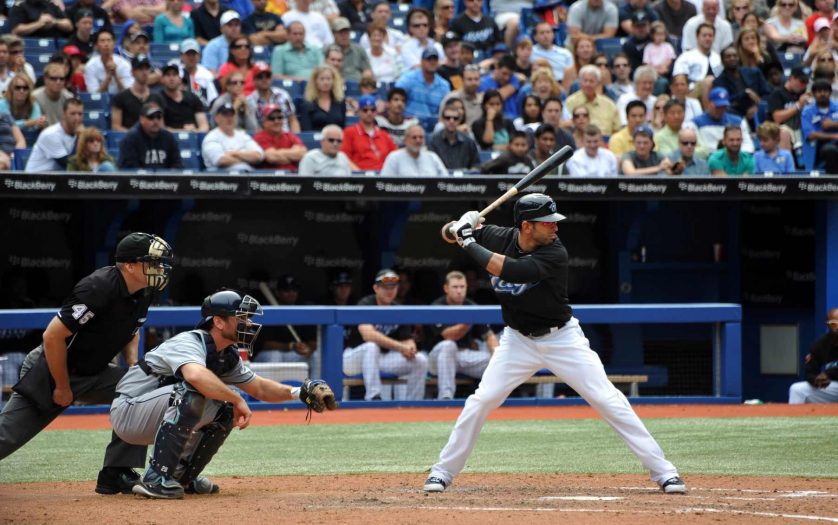
Fans with vision disabilities are voicing their displeasure over Sportnet’s plan to stop traditional radio broadcasting of Toronto Blue Jays games in favour of simulcasting TV broadcasts this season.
Beginning April 1, 2021, the Jays opening day, radio listeners will hear the TV call of the game instead of the more descriptive radio broadcast with dedicated announcers and play-by-play hosts.
Blind and partially blind fans say this move will negatively affect their listening pleasure.
“You are letting down a group of fans who’ve relied on radio for a long time,” said Peter Field, 59 years old from Vancouver.
Field, who went blind due to glaucoma when he was a teenager, explained that blind listeners require more detailed descriptions of the action on the field – something radio broadcasts can provide, but a TV simulcast simply cannot achieve.
“It’s sort of a workaround … saying that’s going to satisfy all the fans,” he said of Sportsnet’s decision. “It’s not going to. It’s totally different.”
Sportsnet, owned by Rogers Sports and Media, said they decided to make this change because of the COVID-19 pandemic. They insist this will minimize staff travel as well as make production simpler and more effective.
In a statement to CBC News on Monday, Sportsnet defended their decision.
“The health and safety of our crew and commentators remains our No. 1 priority,” wrote Sportsnet communications manager Jason Jackson.
Field is hoping that Sportsnet will stop to think about its visually disabled fans and what works best for them.
“Either revise the radio for people who appreciate the game that way, or call the simulcast differently so you can bring in that audience,” he said.
Another Blue Jays fan, Dean Steacey of Gatineau, Que., who is also blind, says corporations are supposed to eliminate barriers for people with disabilities, not create new ones.
“This move flies in the face of the Accessible Canada Act and will have a disproportionately negative impact on blind fans,” Steacey said.
According to the Alliance for Equality of Blind Canadians, approximately 1.5 million people are visually disabled in Canada. The group’s president, Marcia Yale, said that the decision to simulcast the games will annoy all fans, whether they are sighted or blind.
“We blind Canadians will miss out on some of the uniquely ‘radio’ content, and sighted TV watchers will have to put up with more in-game explanations they don’t need,” said Yale.








